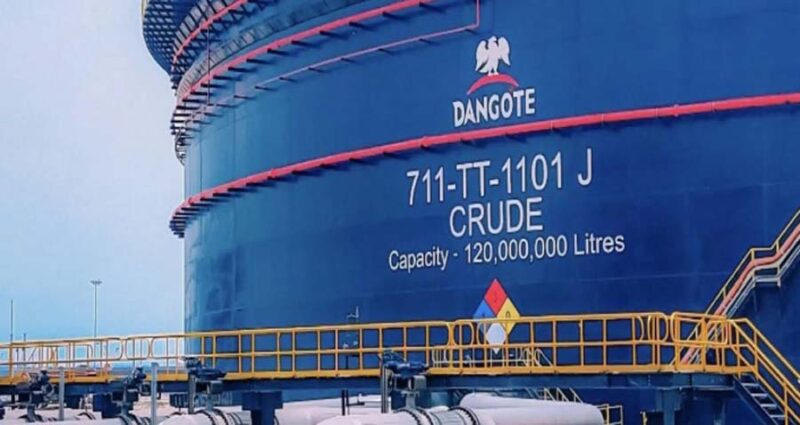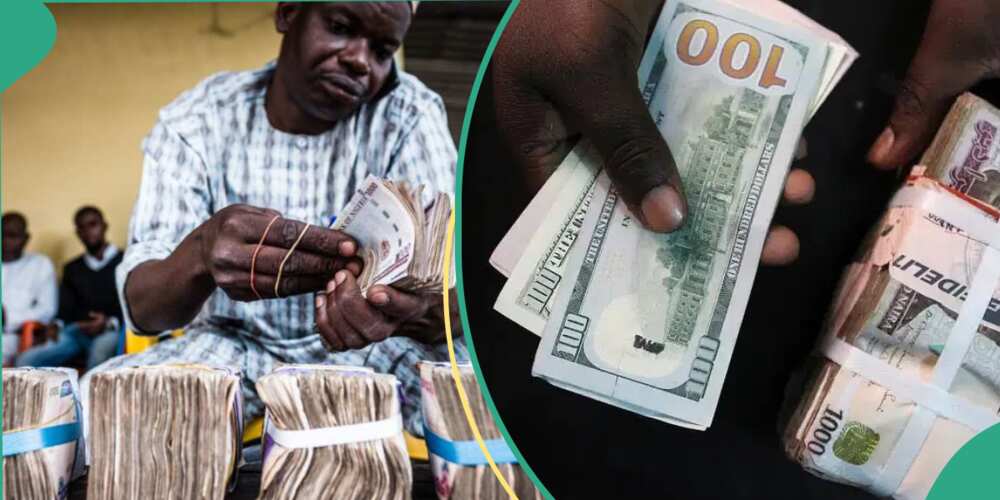Business
Court freezes Kogi account over N20bn bailout loan

A federal high court sitting in Lagos has frozen a Kogi state salary bailout account domiciled in Sterling Bank Plc, over a N20 billion loan obtained from the bank.
Justice Tijjani Ringim granted the order following an ex parte application brought by the Economic and Financial Crimes Commission, pending the conclusion of the investigation or possible prosecution.
The application was brought pursuant to section 44 (2) of the Constitution and section 34(1) of the EFCC Act.
Counsel to the EFCC, Abass Muhammed, told the court that the order was necessary so as to preserve the ‘res’ (the fund in question) and abate further dissipation of the funds in the account.
In his submission, Muhammed informed the court that the N20 billion loan meant to augment salary payment and running cost of the Kogi state government was kept in an interest-yielding fixed deposit account with Sterling Bank.
The EFCC counsel said Sterling Bank Plc is yet to present any credible evidence to show that the facility is well secured.
In his ruling granting the application, the judge directed the EFCC to publish the court order in a national newspaper.
The judge also asked the commission to make a quarterly report to the court on the progress of its investigation, and adjourned the matter till December 1, for the report of investigation.
The commission, in a 13-paragraph affidavit in support of the motion, said it received credible and direct intelligence which led to the tracing of funds suspected to be proceeds of unlawful activities deposited in account No. 0073572696 domiciled in Sterling Bank Plc, with the name ‘Kogi State Salary Bailout Account’.
The commission said it discovered that on April 1, 2019, the management of Sterling Bank Plc approved an offer of N20 billion bailout loan facility for the Kogi State Government.
According to the deponent — a member of a team of investigators attached to the Lagos monitoring unit of the EFCC whose name wasn’t given in the affidavit — in the June 19, 2019 fiscal year, the state government, ministry of finance and economic development, office of the honourable commissioner, applied for a credit facility of N20 billion with an interest rate of nine percent for a tenure of 240 months from Sterling Bank Plc.
The deponent stated that prior to the said application for the loan, the state government had also on June 19, 2019, via a letter to the manager of Sterling Bank Plc, Lokoja, applied to open an account in the bank with the name ‘Kogi State Salary Bailout Account’, with Momoh Jubril, accountant-general of the state, and Elijah Evinemi, acting director of treasury, as signatories to the said account.
The fund was said to be to augment salary payment and running cost of the state government.
The EFCC investigating officer stated further that on June 26, 2019, the credit facility offer was secured by the state through a memorandum of acceptance signed by Yahaya Bello, Kogi governor; Asiwaju Asiru Idris, commissioner for finance, and Jibrin, the accountant-general.
“That upon the opening of the said account with No. 0072969301, Sterling bank Plc disbursed salary intervention loan to the tune of N20,000,000,000.00 to the account,” the affidavit reads.
“That rather than use the intervention funds for the purpose for which it was granted, the state government proceeded to open a fixed deposit account No. 0073572696.
“That on the 25 day of July 2019, Sterling Bank Plc acting on the instruction of the Kogi state government transferred the money from the loan account and placed same on the aforementioned fixed deposit account.
“That the said Account sought to be frozen received the Sum of Twenty Billion Naira, (N20,000,000,000) on 25th July, 2019.
“That as at 1st day of April, 2021, the balance standing to the credit of the said fixed deposit account was N19,333,333,333.36.”
Business
Govt paying N600bn for fuel subsidy monthly — Rainoil CEO

Govt paying N600bn for fuel subsidy monthly — Rainoil CEO
The CEO of Rainoil Limited, Gabriel Ogbechie, has claimed that the federal government resumed the payment of the controversial fuel subsidy following the devaluation of the Naira in the foreign exchange market.
Ogbechie made this statement on Tuesday during the Stanbic IBTC Energy and Infrastructure Breakfast Session held in Lagos.
He pointed out that with Nigeria’s daily fuel usage at 40 million liters and the foreign exchange rate at N1,300, the government’s subsidy per liter of fuel falls between N400 and N500, culminating in a monthly total of approximately N600 billion.
He said; “When Mr. President came in May last year, one of the things he said was that Subsidy is gone. And truly, the subsidy was gone, because immediately the price of fuel moved from 200 to 500 per liter. At that point truly, subsidy was gone.
“During that period, Dollar was exchanging for N460, but a few weeks later, the government devalued the exchange rate. And Dollar moved to about N750. At that point, subsidy was beginning to come back.
READ ALSO:
- North Central Support Group rejects Northern Elders, pledges allegiance to Asiwaju
- Gunmen kidnap 2 FRSC officers along Abakaliki-Enugu highway
- Driver killed, 16 passengers abducted on Abuja-Lokoja road
“The moment the two markets officially closed, officially the market went to about N1,300. At that point, that conversation was out of the window. Subsidy was fully back on petrol. If you want to know where petrol should be, just look at where diesel is. Diesel is about N1,300 and petrol is still selling for N600.
Furthermore, he said that NNPC being the only petrol importer in the country implies that there is an ongoing subsidy, as prices had to be fixed.
Earlier yesterday, the former governor of Kaduna State, Nasir El Rufai, said the federal government is spending more on petrol subsidy than before.
In addition, the Special Adviser to the President on Energy, Mrs. Olu Veŕheijen, said that the Federal Government reserves the right to pay fuel subsidy intermittently to cushion hardship in the country.
“The subsidy was removed on May 29. However, the government has the prerogative to maintain price stability to address social unrest. They reserve the right to intervene.
“If the government feels that it cannot continue to allow prices to fluctuate due to high inflation and exchange rates, the government reserves the right to intervene intermittently and that does not negate the fact that subsidy has been removed,” she said.
Govt paying N600bn for fuel subsidy monthly — Rainoil CEO
Business
Breaking: Dangote brings diesel price down to N1000/litre

Breaking: Dangote brings diesel price down to N1000/litre
Dangote Petroleum Refinery has announced a further reduction in the price of diesel.
When it commenced operation a few weeks ago, Dangote Petroleum Refinery pegged the price of diesel as N1,200.
While rolling out the products, the refinery supplied at a substantially reduced price of N1,200 per litre three weeks ago, representing over 30 percent reduction from the previous market price of about N1,600 per litre.
READ ALSO:
- Kano anti-corruption agency slams fresh charges against Ganduje
- Troops kill ISWAP Commanders, 30 other terrorists
- Ooni of Ife dismisses agitators of Yoruba nation
However, on Tuesday, a further reduction of N200 was noticed in the price, with the product now pegged at N1,000.
This significant reduction in the price of diesel, at Dangote Petroleum Refinery, is expected to positively affect all the spheres of the economy and ultimately reduce the high inflation rate in the country.
The President of Dangote Group, Aliko Dangote, had during the Eid-el-Fitr celebration said if the cost price of diesel comes down, the inflation rate will be substantially reduced.
Dangote spoke when he visited President Bola Tinubu in his residence in Lagos State to celebrate the end of the Ramadan fast with him.
Breaking: Dangote brings diesel price down to N1000/litre
Business
Naira records five-month highest gain, sells below N1000/$ at parallel market

Naira records five-month highest gain, sells below N1000/$ at parallel market
The naira continued its positive showing against the United States dollar on Monday, selling below N1000/$ in some segments of the parallel market.
Newstrends reports that the Federal Government, groups and some individuals have mounted a spirited campaign for those hoarding the dollars to push them out as naira continues to appreciate.
On Monday, the naira was offered in some parts of Lagos and Abuja between N995 and N1,050 per dollar in the parallel market. It was N1,230/$ on Friday.
The latest gain, being over five-month highs, came in the wake of the Iranian attack on Israel and a rise in the crude oil price.
Goldman Sachs, American investment bank economists, had earlier predicted that the naira’s bullish momentum on the foreign exchange market would likely cause it to trade for less than N1,000 per US dollar in the coming months.
According to a report by Nairametrics, the group claimed that the rally in Nigerian currency helped recover from large losses after two devaluations since last June by being bolstered by capital inflows and successive interest rate hikes.
In March, Goldman Sachs projected that the Naira would appreciate to N1,200 per dollar in 2024.
At the official foreign exchange market, the rate was put at N1,136/$ in contrast with N1,205/$ last Friday.
The top bank has implemented several policy initiatives in recent months to bring stability to the foreign exchange market.
The CBN increased interest rates to 24.75% at the most recent meeting of the Monetary Policy Committee (MPC), which helped it recover losses from the two devaluations that occurred since June of last year.
Further gains for the naira result from the CBN’s ongoing intervention, which involves selling foreign exchange to Bureau De Change operators at a revised rate.
The market anticipates higher inflows of US dollars from the sale of foreign currency bonds in the second quarter as disclosed by Finance Minister Wale Edun.
The Federal Government has just offered high-yield short-term debt products at a premium to entice overseas capital into the economy.
The Middle East’s geopolitical unrest and
Notwithstanding a drop in Nigeria’s production volume, crude oil prices have risen beyond $90.
Nigerian grades of oil are trading at a premium to the ICE Brent benchmark.
The Middle East’s geopolitical unrest and the anticipation of an Iranian government strike on Israel caused oil prices to soar.
-

 metro6 days ago
metro6 days agoTroops arrest ISWAP commander involved in Army General, 3 soldiers’ killing in Borno
-

 News6 days ago
News6 days agoBREAKING: Ex-Abia gov, Ogbonnaya Onu, is dead
-

 News7 days ago
News7 days agoBetta Edu threatens to sue BBC, alleges defamation
-

 News7 days ago
News7 days agoI never said Aiyedatiwa is Tinubu’s preferred candidate in Ondo – Interior Minister
-

 metro7 days ago
metro7 days agoJUST IN: Actor Junior Pope resuscitated after death scare
-

 metro7 days ago
metro7 days agoPolice arrest female kidnapper in Ebonyi, rescue six abducted children
-

 Health7 days ago
Health7 days agoNAFDAC recalls Benylin cough syrup
-

 News7 days ago
News7 days agoHow to apply for new NIMC multipurpose ID card






















